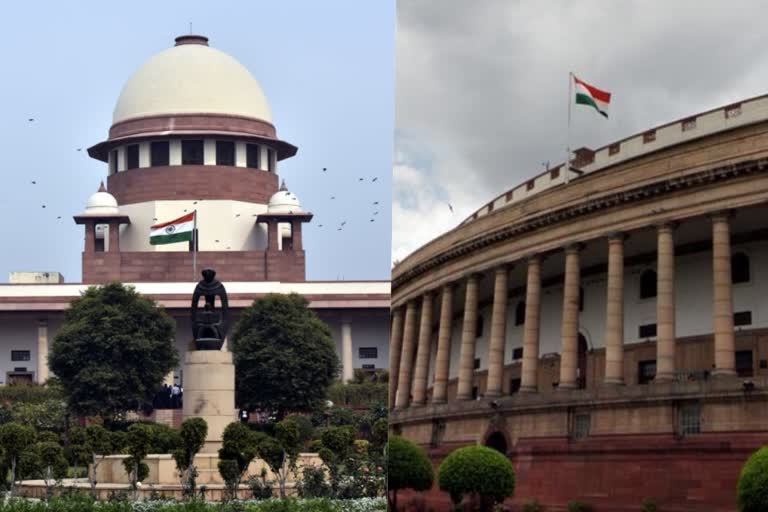New Delhi: Supreme Court on Wednesday said the question of validity of Finance Act 2017, question of money bill and certification accorded by speaker to be referred to a larger bench.
While the Constitution Bench headed by Chief Justice Ranjan Gogoi upheld the validity of Section 184, it has struck down the Rules framed thereunder.
SC strikes down Tribunal, Appellate Tribunal and other Authorities (Qualifications, Experience and other Conditions of Service of Members) Rules, 2017 that are framed under section 184 of the Finance Act 2017. And it directed the government to reformulate fresh rules with respect to appointment of tribunal members.
A bench headed by Chief Justice of India also directed the Ministry of law to conduct impact study and submit report to the apex court. SC directs that appointment in tribunals shall be in accordance with respective statutes.
Section 184 of the Finance Act 2017, says that the Union government may make rules for qualification, appointment, term of office, salaries and allowance, resignation, removal and other terms and conditions of service of the chairperson and other members of the tribunals.
The judgement was delivered in the ‘Rojer Mathew vs South Indian Bank ltd. & ors’ case and on a batch of pleas challenging the constitutional validity of the Finance Act, 2017 on the ground that it was passed by the Parliament as a Money Bill.
The five-judge bench also comprised of Justice NV Ramana, Justice DY Chandrachud, Justice Deepak Gupta and Justice Sanjiv Khanna had reserved the judgment on April 2.
What is a Money Bill?
Under Article 110(1) of the Constitution, a Bill is deemed to be a Money Bill if it contains only provisions dealing with matters like the Imposition, abolition, remission, alteration or regulation of any tax and the payment of money into or the withdrawal of money from the Consolidated Fund or the Contingency Fund of India.
Difference Between Money Bill and Finance Bill
While all Money Bills are Financial Bills, all Financial Bills are not Money Bills. For example, the Finance Bill which only contains provisions related to tax proposals would be a Money Bill. However, a Bill that contains some provisions related to taxation or expenditure, but also covers other matters would be considered as a Financial Bill.
Secondly, as highlighted above, the procedure for the passage of the two bills varies significantly. The Rajya Sabha has no power to reject or amend a Money Bill. However, a Financial Bill must be passed by both Houses of Parliament.
Read more:‘Demonetisation caused slowdown?’



